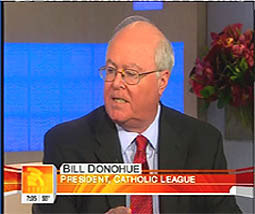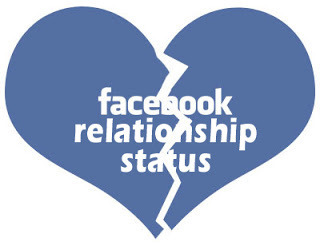Al Kresta's Blog, page 332
April 15, 2011
Cartoon of the Day - Everything Off The Table
Published on April 15, 2011 11:54
Today on Kresta - April 15, 2011
Talking about the "things that matter most" on April 15
4:00 – The Fulfillment of All Desire
Ralph Martin is the author of The Fulfillment of all Desire. In it, Ralph draws upon the teaching of seven acknowledged "Spiritual Doctors" of the Church, presents an in-depth study of the journey to God. This book provides encouragement and direction for the pilgrim who desires to know, love, and serve our Lord. Whether the reader is beginning the spiritual journey or has been traveling the road for many years, he will find a treasure of wisdom. It is destined to be a modern classic on the spiritual life. Ralph is here in studio to discuss The Fulfillment of all Desire.
5:00 – Adoption: Choosing It, Living It, Loving It
Dr. Ray Guarendi , psychologist, husband and father of ten adopted children, is here to consider the most commonly asked adoption questions with insight, humor and a heart for the adoptive family. His aim? To dispel unsettling misperceptions about adoption, to encourage others to think about and act on adoption, and to guide adoptive parents to a more relaxed, rewarding family life for all involved. He's here to talk to those considering adoption, those who have already adopted and those in the mix as family members or friends of adoptive parents. Adoption: Choosing It, Living It, Loving It.
4:00 – The Fulfillment of All Desire
Ralph Martin is the author of The Fulfillment of all Desire. In it, Ralph draws upon the teaching of seven acknowledged "Spiritual Doctors" of the Church, presents an in-depth study of the journey to God. This book provides encouragement and direction for the pilgrim who desires to know, love, and serve our Lord. Whether the reader is beginning the spiritual journey or has been traveling the road for many years, he will find a treasure of wisdom. It is destined to be a modern classic on the spiritual life. Ralph is here in studio to discuss The Fulfillment of all Desire.
5:00 – Adoption: Choosing It, Living It, Loving It
Dr. Ray Guarendi , psychologist, husband and father of ten adopted children, is here to consider the most commonly asked adoption questions with insight, humor and a heart for the adoptive family. His aim? To dispel unsettling misperceptions about adoption, to encourage others to think about and act on adoption, and to guide adoptive parents to a more relaxed, rewarding family life for all involved. He's here to talk to those considering adoption, those who have already adopted and those in the mix as family members or friends of adoptive parents. Adoption: Choosing It, Living It, Loving It.
Published on April 15, 2011 10:52
April 14, 2011
SNAP Psychiatrist Sent to Prison
 Dr. Steve Taylor, a Louisiana psychiatrist who has worked with the Survivors Network for those Abused by Priests (SNAP), has been sentenced to two years in prison for possession of child pornography.
Dr. Steve Taylor, a Louisiana psychiatrist who has worked with the Survivors Network for those Abused by Priests (SNAP), has been sentenced to two years in prison for possession of child pornography. The news drew the following response from Catholic League president Bill Donohue:
"How many more morally debased psychiatrists are working with SNAP? Did SNAP leaders know about the leisure-time activities of Dr. Taylor? When did they know and what did they do about it? It's time we learned the truth. What we know already is nauseating.
"In 2008, Dr. Taylor's computer was seized by the authorities after they learned that he was downloading child pornography. He was jailed on 107 counts at the time, and in September of last year a grand jury indicted him. The court accepted a plea bargain from him this week.
"Dr. Taylor got off easy, at least according to his own standards. In 2003, speaking for SNAP clients, he argued that the confidentiality of the confessional seal should not be respected by the law. In a contemptuous statement against the Catholic Church, he voiced his objections to a unanimous decision by the Louisiana House Committee on the Administration of Criminal Justice protecting the confidential communication of priests, ministers, rabbis and other clergy members. He said at the time that the seal has to be broken because "We have faces now."

"Well, SNAP, we now have the faces of the children your colleague downloaded to feed his sick habits. If breaking the priest-penitent privilege is something you support, will you now support turning over the patient records of Dr. Taylor? Will you support a probe of this matter? What if there is more evidence against him? What if there are more victims? You're always looking for new victims, aren't you? Strike when the iron is hot—who cares about psychiatrist-patient privilege?"
Published on April 14, 2011 14:22
Burning Rage
 At least 21 people died in Afghanistan during three days of protests over one Florida pastor's bizarre Quran-burning ceremony, and a top U.S. general warned that the fallout could pose fresh dangers for American-led war efforts in the country.
At least 21 people died in Afghanistan during three days of protests over one Florida pastor's bizarre Quran-burning ceremony, and a top U.S. general warned that the fallout could pose fresh dangers for American-led war efforts in the country. Thousands of protesters mobbed a UN compound in Mazar-e-Sharif on April 1, protesting the March 20 Quran-burning by Terry Jones, the leader of Dove World Outreach Center—a small, independent church in Gainesville, Fla. The Afghan mob killed three UN workers—a Swede, a Romanian, and a Norwegian—and four Nepalese security guards. Protests continued in cities across Afghanistan, killing 14 Afghans, including a child.
The demonstrations—which included burning effigies of President Barack Obama and shouts of "Death to America"—erupted less than a week after Afghan President Hamid Karzai condemned the Florida Quran-burning as a "crime against religion" and called on the United States to punish the pastor responsible. Jones, who had threatened to burn a Quran in a public event last September, led his church in a five-hour mock trial of the Islamic holy book on March 20 that culminated with burning the Quran.
 The violent reaction in Afghanistan prompted U.S. Gen. David Petraeus, leader of coalition forces, to warn that Jones' actions endangered U.S. efforts by inflaming Afghan crowds. Obama called the burning "an act of extreme intolerance and bigotry," but added that "to attack and kill innocent people in response is outrageous, and an affront to human decency and dignity."
The violent reaction in Afghanistan prompted U.S. Gen. David Petraeus, leader of coalition forces, to warn that Jones' actions endangered U.S. efforts by inflaming Afghan crowds. Obama called the burning "an act of extreme intolerance and bigotry," but added that "to attack and kill innocent people in response is outrageous, and an affront to human decency and dignity." Jones condemned the attacks and called on the United States to hold the offenders accountable. His statement didn't acknowledge his Quran-burning ceremony or address criticism from many—including Christians—who opposed his provocative act. Meanwhile, Karzai offered condolences for the dead UN workers, but didn't condemn the rioters responsible for the murders.
Published on April 14, 2011 13:52
Give Chikin a Chance
 Chick-fil-A faces sustained campaign from gay activists and campus groups over pro-marriage statements
Chick-fil-A faces sustained campaign from gay activists and campus groups over pro-marriage statements By Megan Basham
Some might call it much ado about free chicken, but the fallout over one fast-food chain's goodwill donation could have some business owners afraid that even hinting at conventional religious beliefs will soon make them pariahs in polite society.
In February a local Pennsylvania franchise of the national fast-food restaurant, Chick-fil-A, donated sandwiches and brownies to a marriage seminar hosted by the Pennsylvania Family Institute, an affiliate of the Arkansas-based nonprofit Family Life, co-founded by Dennis and Barbara Rainey.
Nothing on the day's agenda, titled "The Art of Marriage," focused on homosexuality, gay unions, the Defense of Marriage Act, or anything other than teaching married couples how to improve and strengthen their relationships. Given that WinShape, the charitable arm of Chick-fil-A, has a longstanding relationship with Campus Crusade for Christ, the parent group of Family Life, it's not surprising that the franchise owner offered up some gratis grub for the event. Yet because both Family Life and Campus Crusade have been outspoken in their opposition to same-sex marriage, the gesture has led to some highly publicized if highly localized backlash for the popular fast-food chain.
It started with student groups at universities across the country demanding that their administrations kick Chick-fil-A vendors off campus. According to change.org, which led the charge on petitions against the company, organizations at more than 20 schools are agitating against Chick-fil-A—including Texas Tech, Ole Miss, Duke, North Carolina State University, Florida Gulf Coast University, and Indiana University-South Bend (IUSB). (As a result of student outcry, IUSB temporarily suspended the nearby franchise's campus food service. Though now reinstated, its status remains uncertain.)
Then, last month after receiving appeals from PROMO, a group that describes itself as an advocate for lesbian, gay, bisexual, and transgender equality, the Clayton County, Mo., Chamber of Commerce abruptly canceled a planned appearance from Chick-fil-A COO and president, Dan Cathy. Chamber head Ellen Gale told the St. Louis Post-Dispatch that until PROMO contacted them, chamber leadership had "no idea he [Cathy] held such controversial views." The disinvite led to unflattering coverage in national outlets like The New York Times and Time magazine questioning whether the restaurant giant, which operates in 39 states and employs more than 60,000 people, is anti-gay.
 But the most unasked question in all the reports is why Cathy's views or the company's charitable collaboration with pro-traditional-marriage ministries should have taken anyone by surprise.
But the most unasked question in all the reports is why Cathy's views or the company's charitable collaboration with pro-traditional-marriage ministries should have taken anyone by surprise. The Cathy family is hardly shy about its Christian faith or its role in guiding the business. One of Chick-fil-A's famously Christian practices has been to close on Sundays so employees can rest and worship. And this isn't the first time the company's adherence to biblical principle has led to a clash with the prevailing culture. In 1948 company founder S. Truett Cathy, now 90, began hiring and mentoring black employees in pre-civil-rights, segregated south Atlanta. Indeed, part of the company mission, published on its website, is to "glorify God by being a faithful steward of all that is entrusted to us." The company even prints Bible verse citations on the bottoms of drink cups.
Christianity is hardly alone in characterizing homosexual behavior as sinful: Islam, Mormonism, Judaism, and others take the same view. Will all businesses that include religious faith as part of their corporate philosophy come under fire from gay groups? And will universities and civic groups similarly shun all of them for their doctrinally normative though apparently controversial views?
Gale would not return my calls or respond to emails about whether the Clayton Chamber of Commerce will similarly bar executives of Muslim, Mormon, or other mainstream faiths from speaking at the group's functions.
Forced to walk a tightrope between tamping down negative publicity and maintaining its corporate mission, Chick-fil-A too appears press shy. Responding by phone to an interview request from WORLD, Mark Baldwin, senior public relations and publicity consultant, first asked for an emailed description of what kind of story I planned to write. Unable to answer without first conducting an interview, I could not comply, and Baldwin instead sent company press releases.
Dan Cathy in those releases says that while he and his family support a biblical definition of marriage (meaning, presumably between one man and one woman), Chick-fil-A will not support any political agendas on marriage and family. "We've opted not to get involved in the political debate," he told the Atlanta Journal Constitution, saying that while the company operates on biblical principles, it is "not a Christian company."
But if early responses from some gay leaders to Cathy's concessions are any indication, a stance of functional neutrality will not win points with groups Chick-fil-A has angered. Joel Bolling, Coordinator for the University of Missouri-Kansas City's LGBTQIA (Lesbian, Gay, Bisexual, Transgender, Queer, Intersex and Ally) Programs, complained to University News, "Ultimately the corporation made a statement saying they do not support same-sex marriage. Although they have never refused to serve LGBTQIA people or couples, the corporation has never been outright supportive of the LGBTQIA community." As far as Chick-fil-A is concerned, nothing less than wholesale endorsement of homosexuality is likely to persuade the activist groups to back down.
Published on April 14, 2011 13:46
Do Kids Need a Mom and Dad? Arkansas Says No; Virginia Says Yes
 In a 7-0 ruling on Apr. 7, the Arkansas Supreme Court struck down a voter-approved law that prohibited any cohabiting couples from adopting or fostering a child.
In a 7-0 ruling on Apr. 7, the Arkansas Supreme Court struck down a voter-approved law that prohibited any cohabiting couples from adopting or fostering a child.Act 1 — which was written by the Arkansas Family Council (AFC) — passed in 2008 with 57 percent of the vote. The American Civil Liberties Union sued, and in April 2010, a Pulaski County circuit judge ruled it unconstitutional. Today, the state's highest court agreed.
"We have said all along that Act 1 was about child welfare," said Jerry Cox, president of AFC. "The Arkansas Supreme Court has chosen to run roughshod over the people's will and refused to uphold a good law that protected the children in the state's care."
In Virginia, Gov. Bob McDonnell's office is working to block proposed rules that would force private adoption agencies to place children with same-sex couples, against the agencies' religious beliefs.
Fewer than 30 people support the rules initiated by former Gov. Tim Kaine, according to a Washington Times review of 1,074 public comments posted last week.
"This was language proposed by the Kaine administration. We are working with the agency (Department of Social Services) to remove the language," McDonnell spokeswoman Taylor Thornley said.
Victoria Cobb, president of The Family Foundation, has said private adoption agencies should have the ability to screen prospective parents based on the agencies' beliefs.
Published on April 14, 2011 13:37
Supreme Court to Hear Important Religious-Freedom Case
 The Supreme Court has consented to hear a case that Notre Dame law professor Rick Garnett calls "the most important religious-freedom case in 20 years."
The Supreme Court has consented to hear a case that Notre Dame law professor Rick Garnett calls "the most important religious-freedom case in 20 years." According to case records, Cheryl Perich, a teacher at a Lutheran Church school in Michigan, took medical leave in 2004. When she sought to return to work, she was informed that a substitute teacher had been hired and would complete the academic year. In the acrimony that ensued, the church fired Perich for insubordination and "regrettable" behavior. The Equal Employment Opportunity Commission argued she was wrongly terminated.
The courts have generally held that religious organizations must be free from government interference when hiring and firing "ministerial employees" such as pastors, ministers, and teachers. A lower court held that Perich was not a "ministerial employee" since she mostly taught subjects like math and social studies. But Perich taught religion classes four times weekly, shared daily prayers and devotionals with students, and periodically led chapel services.
The case raises troubling questions. If the state can determine which employees are "ministerial," then will it intrude further into church employment decisions? Is the measure of a "ministerial" position the proportion of time spent in overtly religious activities? And doesn't the church have a legitimate interest, even if the teacher only spends a small amount of time discussing religious matters, in making certain that the teacher and teaching represent the faith of the church?
Published on April 14, 2011 13:32
Virtually Dating: Phony online facades jeopardize genuine relationships
 Virtually Dating
Virtually Dating
By Randy Hicks
(WNS)--We've all heard the phrase "the eyes are the window to the soul." In a similar way, some ideas are a window to the soul of our society.
A soon-to-launch company called "Cloud Girlfriend" will be offering a service where men can pay a fee to hire a fake girlfriend who will post on their Facebook page. They never actually meet the girl. They just interact romantically online to make it look like they're in a relationship.
The company not only promotes the service as a way for a guy to dupe friends and family into thinking he has a girlfriend, but also as a way to boost self esteem. Yes, you read that correctly.
Company co-founder David Fuhriman said men "Can use the site to jumpstart the process of changing social perceptions about themselves. This interaction can…provide real training experiences in navigating a friendship and a relationship."
He also explains that the site can have therapeutic values by fulfilling psychological needs for intimacy and friendship. And it can build self confidence.
 Seriously? Has it come to this? This idea seems better fitted for a Saturday Night Live skit than a real business venture.
Seriously? Has it come to this? This idea seems better fitted for a Saturday Night Live skit than a real business venture.And if it weren't so sad, it would be funny. I know that sounds trite, but I really mean that. As a comedy sketch, it's a very funny concept. But as a business idea, it's depressing.
Hopefully, few guys who use this will be under the illusion that their "girlfriend" is real. Most of us know that if you're paying someone to be your friend, they're not your friend.
What's sad about this is that it points to the lengths that some people will go for relationship, even at this superficial level. Whether it's an attempt by the guy to feel some type of romance, to improve self-esteem, or just to fool others into thinking he has a girlfriend, it shows that relationship matters.
But as others have said, we are our secrets, not our public relations. No matter what facades we put forward to make others think more highly of us, it doesn't change who we are or what we need.
Adding false layers to our identity just makes it harder for us to connect with others in a healthy way because we aren't being ourselves. It doesn't improve our self confidence; it diminishes it because at the end of the day we're really worse off than we started.
We gain self confidence through accomplishment; by using our God-given skill and ability toward something productive.
No matter what the folks at "Cloud Girlfriend" say, neither their service, nor any other online social network, can cure insecurity or provide truly authentic human connections.
The Internet has already taken us a long way from genuine relationships. Social network site like Facebook have created a virtual world where users, particularly young people, are consumed by the desire to be perceived well by others, to have lots of online "friends," and to constantly be seen and heard. Don't get me wrong, I enjoy Facebook and use it often to connect with friends and family. It's the site's misuse that's the problem.
Ironically, this constant "connection" with one another has actually created more isolation. The Internet is replacing the interpersonal communication vital to building trust and closeness, and working through problems. Interacting in an online world can weaken or prevent meaningful connection between two people.
According to recent reports, young people are struggling with a new form of depression brought on by Facebook. They're feeling inferior to their peers who have more online "friends," constantly post fun-filled pictures, and appear to be so much better off. But the reality is, those kids are likely presenting a skewed image of themselves too. And the cycle continues.
Facebook got you down? Here's my suggestion: walk away from your computer, go engage with real people. Find something you're good at and pursue it wholeheartedly. Perhaps even consider serving those less fortunate than you. It may not be easy; it may be awkward. But it's a lot better than interacting with a virtual phony.
Randy Hicks is the president of Georgia Family Council, a non-profit research and education organization committed to fostering conditions in which individuals, families and communities thrive.
Published on April 14, 2011 13:29
Christians in the Middle East
 By George Weigel
By George WeigelDr. Habib Malik of the Lebanese American University has been a friend for many years. Few men have such an informed and humane view of the sad, even desperate, position of Christians in the Middle East. As a Lebanese Maronite with a Harvard doctorate in intellectual history, what Dr. Malik knows comes from experience as well as impeccable scholarship.
The Hoover Institution Press at Stanford University recently published a short booklet by Dr. Malik that should be required reading for anyone concerned with the fate of ancient Christian communities throughout the Levant, including the Holy Land. Islamism and the Future of the Christians of the Middle East can be read in one sitting. Its brevity is an advantage: a concise mind and an accomplished pen distilling a vast amount of knowledge and experience into 68 pages. Let me try, with far greater brevity, to highlight several of the book's key points.
1) Middle East Christians today have had two distinct historical experiences. One is an experience of freedom. The other is an experience of being a dhimmi, a second-class citizen existing on the sufferance of the Muslim majority in an Islamic state.
2) 90 percent of Christian Arabs live in conditions of dhimmitude today, including the Copts in Egypt, the Chaldeans and Assyrians in Iraq, and the Greek Orthodox and Melkites in Syria, Jordan, and the Palestinian Authority. These are the Christians at greatest risk from Islamism and jihadism.
3) Christians who have been subjugated for generations have, over time, "lost all sense of what it meant to experience a life of true liberty." Thus they have developed a variety of survival strategies that, having been thoroughly internalized, now seem natural: kowtowing to authority; accepting benefactions from dictators like Saddam Hussein in Iraq or the Assad dynasty in Syria; remaining silent in the face of atrocities committed against Christians by Islamists and other Muslims; blaming the current problems of Christians in the Middle East on that great bugbear, the State of Israel.
 4) Christian communities in the Middle East are also under tremendous pressure because their numbers are shrinking while Muslim populations are growing. Emigration (to escape persecution or to seek prosperity) has played a considerable role here; so has contraception.
4) Christian communities in the Middle East are also under tremendous pressure because their numbers are shrinking while Muslim populations are growing. Emigration (to escape persecution or to seek prosperity) has played a considerable role here; so has contraception.5) Both free Christian communities and dhimmi Christian communities suffer from a paucity of indigenous leadership. (Dr. Malik doesn't say it, but I expect he means both political leadership and religious leadership.) This has created another comparative disadvantage for Christian communities in the Middle East. For their Muslim neighbors, having rejected various secular ideologies, have increasingly turned to more stringent (and thus more intolerant) forms of Islam in recent decades -- and have done so at a time when few Christian leaders, clerical or lay, have been defending Christians' rights, much less proposing Christianity as an attractive alternative to secular ideologies.
6) Western indifference to the fate of Arab and other Middle Eastern Christians has also contributed to their decline and their present peril. This blindness has also imperiled the West. Vibrant Christian communities can be a check on Islamism and jihadism by promoting Islamic moderation and openness. In Malik's own words:
Such moderation is sure to be strengthened when Muslims interact daily with confident fellow-native adherents to a creed that does not condone suicide bombers, respects women, is not out for religious domination, upholds the principle of religious pluralism, is compatible with liberal democracy, defends personal and group rights, emphasizes the centrality of education, and is not uncomfortable with many features of modern secular living. Whenever local Christians have felt relatively unmolested, they have acted as catalysts for positive change and as conduits for some of the West's finest and most enduring universal values, and this in turn has advanced Islamic tolerance and moderation.The defense of religious freedom for persecuted Christians in the Middle East is a moral obligation. It is also a strategic imperative. Middle East Christians who share a historical experience of freedom, or who can shake off the psychological shackles of dhimmitude, are a strategic asset, not the headache the State Department usually imagines them to be.
George Weigel's column is distributed by the Denver Catholic Register, the official newspaper of the Archdiocese of Denver
Published on April 14, 2011 11:47
Top choral director calls modern Church music 'ecclesiastical karaoke'
 A Grammy winning music director has delivered a stinging attack upon modern Church music. Joseph Cullen, choral director at the London Symphony Orchestra, says that since the 1960s there has been a "glaring lack of sympathy" for "worthy sacred music."
A Grammy winning music director has delivered a stinging attack upon modern Church music. Joseph Cullen, choral director at the London Symphony Orchestra, says that since the 1960s there has been a "glaring lack of sympathy" for "worthy sacred music."Writing in the April 9 edition of the English weekly The Tablet, he praised the music used during last year's papal visit to the United Kingdom. But he added: "Sadly such excellence is untypical of the vast majority of our Catholic churches. There is a glaring lack of sympathy for the heritage which should be the bedrock of worthy sacred music in today's Church."
In recent years Joseph Cullen has risen to prominence due to his close collaboration with some of the world's leading conductors including Sir Simon Rattle, Valery Gergiev and Sir Colin Davies, with whom he won a Grammy Award in 2006 for their recording of Verdi's "Falstaff."
In his analysis, Cullen says the rush to find new musical settings for the Novus Ordo mass in the 1960s led to little artistic scrutiny being applied to the process. As a result, he says, most parish Masses now have poorly composed hymns being used inappropriately as mere "filler" throughout the sacred liturgy.
He writes, "Low-quality material in both inspiration and facility is commonplace. Hymns are set to popular music (for example, "My God Loves Me" to the tune of "Plaisir d'amour") with little regard to the inappropriateness of the original and well-known words."
He also criticized the practice of a lone cantor leading the singing in parishes. "The misuse of one booming voice behind a microphone, an ecclesiastical karaoke, seems to have killed off unified congregational singing."
Perhaps his most stinging attack, though, is aimed at official diocesan musicians who both commission and promote their own music. "The elected church music committees of the bishops' conferences cannot have vested interests in promoting their own music, or type of music. This would be regarded as corrupt in any other field."
Cullen is now calling for a greater adherence to the Church's documents on sacred music and increased training for parishes by those schooled in the choral traditions of the Church.
Published on April 14, 2011 11:13
Al Kresta's Blog
- Al Kresta's profile
- 12 followers
Al Kresta isn't a Goodreads Author
(yet),
but they
do have a blog,
so here are some recent posts imported from
their feed.




